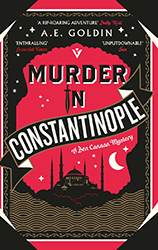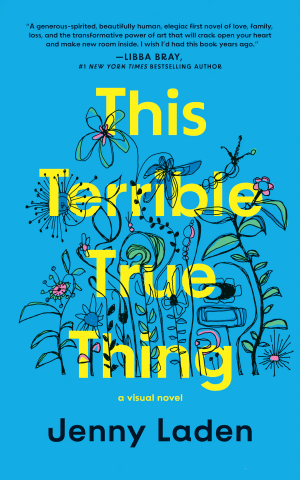Rachel Sharona Lewis’s The Rabbi Who Prayed with Fire is both a tribute and an update to Harry Kemelman’s classic Rabbi Small mysteries. The homage is explicit, but even without Lewis’s author’s note on the subject, it would be clear from the balance of city and synagogue politics, the interpersonal relationships, and the loving critique of the American Jewish community’s foibles. Whereas the Rabbi Small series (originally published in the 1960s) stars a male rabbi hired to give his somewhat assimilationist congregation a traditional flavor on the bimah, Lewis’s twenty-first-century version stars a young, lesbian rabbi whose affluent Conservative congregation has hired her in hopes of bringing in a new generation. “You don’t look like a Rabbi,” says the love interest, Karla, on first meeting Rabbi Vivian — and quickly corrects herself: not like the rabbi who taught her Hebrew school, her last experience of Jewish community life. While cautiously kindling a relationship with Karla despite the latter’s job as campaign manager for a city councilor who Vivian finds insufficiently progressive, the rabbi must also try to find her footing in her congregation as more than a token fresh face.
The mystery itself is satisfying, but not terribly complicated, though enough threads remain untied at the end to imagine a whole series of Rabbi Vivian stories. What is truly satisfying about the book is its deft handling of the community issues that plague an affluent, historic Jewish congregation. Congregation Beth Abraham’s struggles are common ones for synagogue leadership, ranging from declining membership to slow-moving committees to rising antisemitism in the public, with the mystery coalescing around a Friday-evening fire that might — or might not — be arson, might or might not be a hate crime. The fire draws out long-standing tensions between the need for security against antisemitism, and the fact that increased policing of synagogues makes Jewish spaces less safe for potential congregants of color and for individuals, like Raymond, the Black custodian at Beth Abraham, who are not Jewish but nevertheless essential to the running of synagogue life.
While many congregations have made the changes Rabbi Vivian represents for the fictional Beth Abraham — interfaith cooperation, more youth programs, social justice initiatives — others are still in the place the book’s congregation finds itself, needing to expand in order to attract new members, yet cautious to be too open when the political climate feels uncertain for Jews in the United States. Rabbi Vivian’s story thus speaks to the need to reach past our traumas and build connection with communities besides our own that have also, in their unique ways, been traumatized. In that sense, the book accomplishes exactly what it set out to do: encourage self-reflection even as we enjoy the thrill of solving the whodunnit. The Rabbi Who Prayed with Fire is a welcome addition to the detective genre.
Sacha Lamb (@sachalamb.author on Instagram) explores gender, sexuality, and disability through historical fiction centering Jewish mythology and folklore. Their debut, When the Angels Left the Old Country, is a Printz Honor book and Stonewall and Sydney Taylor award winner. Their second novel, The Forbidden Book, is a Sydney Taylor Honor book and a Boston Globe Best of the Year pick for 2024. A 2018 Lambda Literary fellow, Sacha has a degree in Library and Information Science from Simmons University. They live in New England with a miniature dachshund mix named Anzu Bean.




